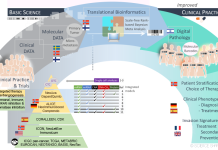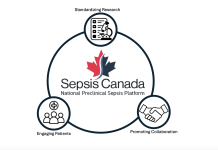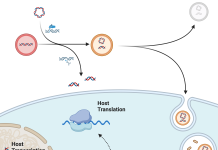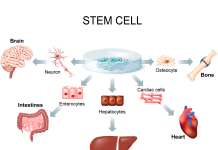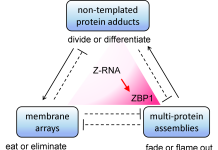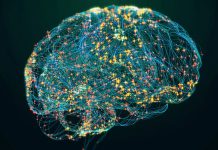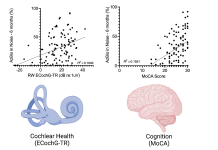Open Access Government produces compelling and informative news, publications, eBooks, and academic research articles for the public and private sector looking at health, diseases & conditions, workplace, research & innovation, digital transformation, government policy, environment, agriculture, energy, transport and more.
Home 2024
Archives
The future of AVS, dizziness, and vertigo in emergency departments Part IV: Priorities for...
In the fourth article of this five-part series, Dr Millie Nakatsuka discusses how reform must be integrated into the broader context of the public health landscape.
Fish hearts expose toxic truth about our cardiovascular health
Professor Holly Shiels, from the University of Manchester, is the Director of the Company of Biologists and the President of the Fisheries Society of the British Isles. She charts a toxic tide by tracing the path of pollutants from fish hearts to human cardiovascular health.
Stem cell therapy for osteoarthritis: Functional cartilage regeneration using 3d bioprinting technology
Osteoarthritis presents a significant societal and economic burden. Stina Simonsson from the University of Gothenburg explains how EU-funded projects are using 3D bioprinting to create functional cartilage for OA treatment.
Breast cancer prevention: Precision medicine and health
Biobank Norway Project experts chart the journey from precision medicine to precision health when it comes to breast cancer prevention.
Mobilizing pain care knowledge in Canada
Norm Buckley and Jason Busse from the Michael G. DeGroote Institute for Pain Research & Care discuss the mobilization of knowledge about the pain environment in Canada, focusing on the role of an ad hoc community-based organization.
Protecting cancer survivors across Europe from financial discrimination: The right to be forgotten
Mark Lawler and Françoise Meunier highlight the financial discrimination that many cancer survivors face despite being cured of their disease and propose a data-informed legal solution so that cancer patients are not punished for a previous cancer diagnosis.
Advancing knowledge about criminal justice and mental health
Researchers with expertise in criminal law, philosophy, psychiatry and psychology are combining their knowledge to explore how mental disorders are approached within criminal law and contribute to better legal and forensic practices.
Making preclinical sepsis research stronger, faster, and more responsive to patients
Sepsis represents a significant global burden. The National Preclinical Sepsis Platform (NPSP) is leading vital sepsis research, informing policy, driving innovation, and ultimately saving lives.
Seasonality and climate change: Challenges for physical activity in older adults
Research indicates seasonal variations in physical activity levels among adults in different climates due to temperature and humidity. Climate change’s increasing extreme weather may significantly affect physical activity in older adults already struggling to meet activity guidelines. Isabelle J. Dionne from the Université de Sherbrooke explains.
Hormonal contraceptives and women’s mental health – A long-term perspective
Belinda Pletzer of the University of Salzburg discusses the importance of researching the mental health effects of hormonal contraceptives and the need to identify women at risk for adverse mood reactions before they start hormonal contraception.
Engineering interkingdom communication for next-generation therapeutic approaches
Brian Snyder and Christopher H. Contag, from Michigan State University, discuss engineering interkingdom communication, which is not for palace intrigue, but for next-generation therapeutic approaches they argue.
Adipose tissue: A treasure trove of stem cells for regenerative medicine
Adipose tissue, commonly known as fat, has long been considered a mere energy reservoir. However, recent discoveries have revolutionized our understanding of this tissue, placing it at the heart of advances in stem cells and regenerative medicine.
Modeling cigarette smoking exposure in subsets of the population
Understanding and acknowledging various factors that impact cigarette smoking and exposure is critical when creating public health interventions to curb tobacco use. Here, Theodore R. Holford from Yale University discusses the impact of different approaches to tobacco control.
Vaccine hesitancy and the challenge of successful scientific communication
Drawing on personal experiences and public discourse, Dr. Klaus Eyer, an Associate Professor at Aarhus University, explores the challenges of communicating about vaccine science to address vaccine hesitancy.
Understanding and predicting the intergenerational transmission of mental illness
The FAMILY consortium aims to improve the lives of mentally ill persons and their families by focusing on understanding the mechanisms of intergenerational transmission of mental illness from parent to child.
Cellular scaffolding: Crowdsourcing cellular responses in health and disease
In this article, Dr Alan Herbert discusses how different types of cellular scaffolds interact and impact the risk of diseases, citing the example of Z-RNAs pushing cells to inflammatory states in tumors and autoimmune conditions, setting the stage for new therapeutics.
The sociology of bridge: Sport recognition for mind sports
The game of contract bridge, as we know it today, originated in the 20th century – but what lies ahead for bridge as a mind sport? Professor Samantha Punch, the academic behind “Bridge: A MindSport For All”, provides the answer.
Timely diagnosis and intervention for people with dementia
Jockey Club Centre for Positive Ageing experts highlight the importance of timely diagnosis and intervention for people with dementia.
A novel avenue to explore in the treatment of dementia
A collaborative project between the University of South Florida and The Healthy Aging Company is exploring how a new biological entity called ALF5755 could be a candidate drug for the treatment of dementia and Alzheimer’s disease.
Cognitive function and electrode mapping’s role in cochlear implant performance
Amit Walia, Matthew Shew and Craig A. Buchman from Washington University School of Medicine, detail the role of cognitive function and electrode mapping in cochlear implant performance.




